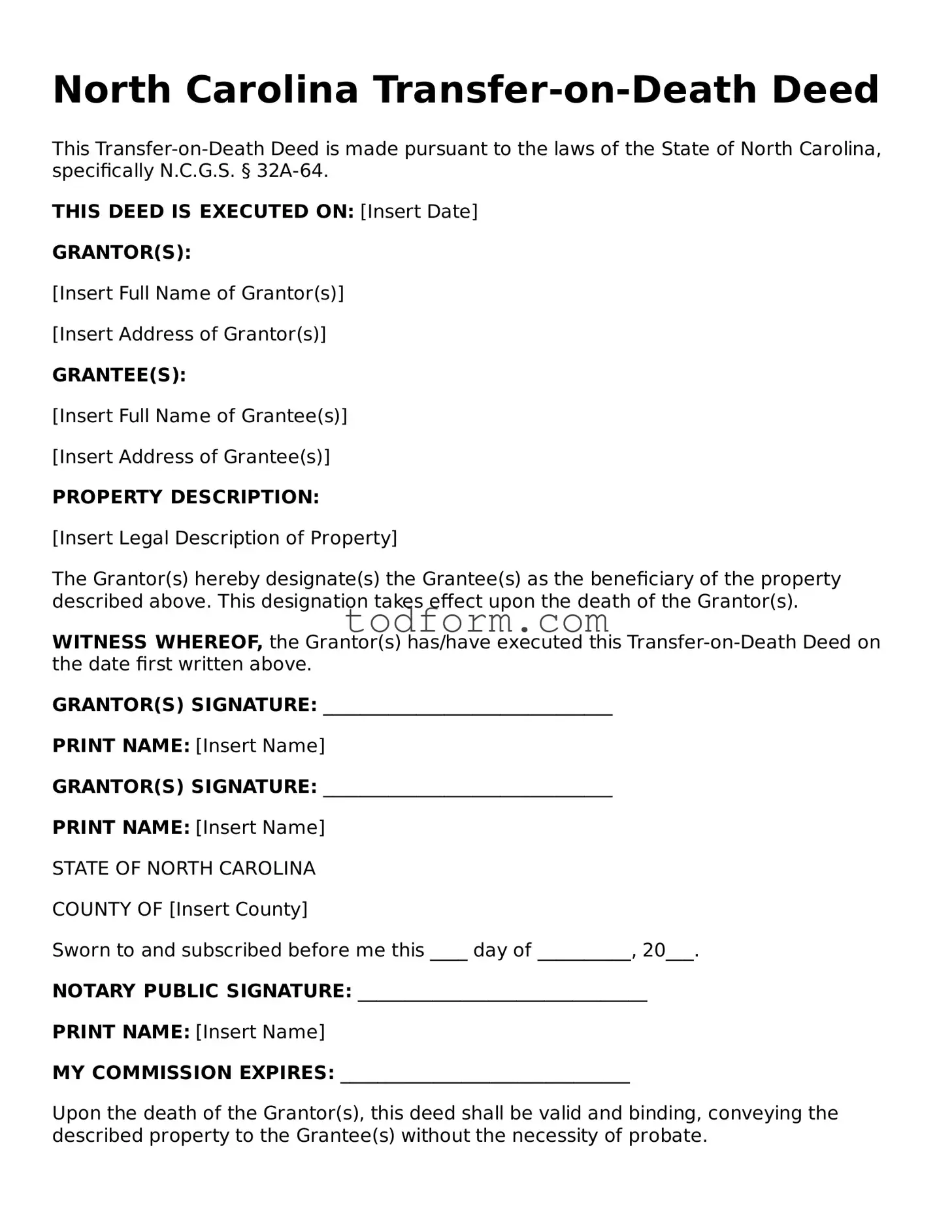North Carolina Transfer-on-Death Deed
This Transfer-on-Death Deed is made pursuant to the laws of the State of North Carolina, specifically N.C.G.S. § 32A-64.
THIS DEED IS EXECUTED ON: [Insert Date]
GRANTOR(S):
[Insert Full Name of Grantor(s)]
[Insert Address of Grantor(s)]
GRANTEE(S):
[Insert Full Name of Grantee(s)]
[Insert Address of Grantee(s)]
PROPERTY DESCRIPTION:
[Insert Legal Description of Property]
The Grantor(s) hereby designate(s) the Grantee(s) as the beneficiary of the property described above. This designation takes effect upon the death of the Grantor(s).
WITNESS WHEREOF, the Grantor(s) has/have executed this Transfer-on-Death Deed on the date first written above.
GRANTOR(S) SIGNATURE: _______________________________
PRINT NAME: [Insert Name]
GRANTOR(S) SIGNATURE: _______________________________
PRINT NAME: [Insert Name]
STATE OF NORTH CAROLINA
COUNTY OF [Insert County]
Sworn to and subscribed before me this ____ day of __________, 20___.
NOTARY PUBLIC SIGNATURE: _______________________________
PRINT NAME: [Insert Name]
MY COMMISSION EXPIRES: _______________________________
Upon the death of the Grantor(s), this deed shall be valid and binding, conveying the described property to the Grantee(s) without the necessity of probate.
